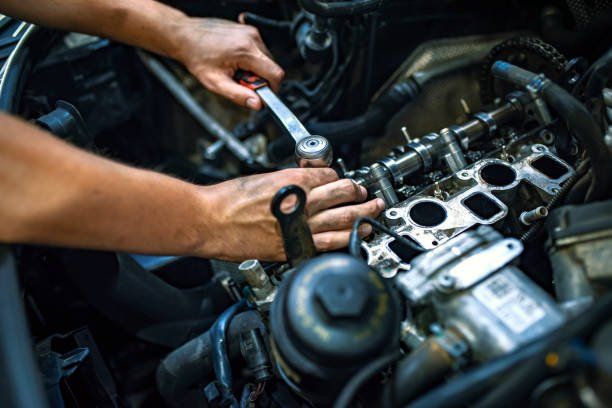Engine damage and its causes
Oh no! - But why ...?
The horror of every driver - Because it always means stress, breakdown of the car, and costs ... and quite a bit of it, but why? Can this be avoided? Yes and no, because of course this can always happen, but careful handling of our vehicle, regular maintenance and prompt professional repairs can at least keep the risk at a low level.
But what exactly is engine failure?
First of all, it means the loss of functionality and necessary or desirable properties of the engine. Engine damage can take different forms and also have a variety of symptoms. Basically, there are two types of engine damage:
- Primary engine failure
- Secondary engine damage
Let's take a quick look at the most well-known and important ones:
Get offer
Contact us
1 engine oil - please neither too little nor too much!
Inadequate lubrication can itself have many causes, oil change intervals that are not observed, unsuitable engine oil, oil contaminated with fuel and the like (e.g. with oil sludge), but a defective oil pump can also lead to insufficient engine oil getting into the circuit. The result: Mechanical friction due to a lack of lubrication and severe material damage including metal splinters and the like, which can cause fatal engine damage.
But also an excess of engine oil is absolutely not recommended. Why? Quite simply: If there is too much engine oil, the pressure increases accordingly, for which the oil lines and all other components involved (oil pan etc.) are not designed.
2 The issue about temperature
Engines are designed to be able to withstand very high temperatures - but at some point they have to stop. Total damage can occur if the heat is too high. So you should definitely avoid overheating the engine. Simple things like refilling cooling water can help and prevent worse things from happening.
3 Engine damage due water
Sure, your engine can easily cope with going to the car wash and normal rain. However, if your car is flooded up to the engine, things look bleaker. But driving at high speed through a deep (usually unnoticed) puddle of water can also lead to fatal damage.
"It wasn't the engine's fault at all!"-
Motor defect as consequential damage
Turbocharger defect
What should actually bring more performance can in the end have exactly the opposite effect. Depending on the turbocharger damage pattern, metal parts can get into the engine compartment and lead to a total loss.
Catalyst defective
If the catalytic converter no longer functions properly, coking can also form there. In the worst case, small local explosions can send pieces of metal through the exhaust system. These in turn get into the engine compartment...
Lambda sensor defective
If the control probe no longer controls the exhaust gas composition correctly, this can first lead to a defective catalytic converter and then to engine damage.
Injection nozzle or injector defect
Whether too little or too much fuel - if the injection quantity is not correct, it can damage the cylinder heads and, in the worst case, lead to irreparable engine damage. If the injectors are leaking, the combustion chamber is no longer completely sealed. And that means unburned fuel gets into the engine compartment and and causes devastating damage.
Wrong fuel?
This can also lead to engine defects!
And whether diesel in petrol or vice versa – it doesn't matter: Modern vehicles have extremely complex engines that, due to their very delicate components, depend on the right fuel.
Timing chain defect or toothed belt defect
If the timing chain or the toothed belt jumps out or tears, there is a risk of total engine damage. If the chain or the toothed belt no longer works properly, the connection between the camshaft sprocket and the crankshaft sprocket is inevitably disrupted. The result: the piston rises without the valve closing - which leads to distortion and damage to the injector.
And then there still is a factor called "human error"...
Wear - Maintenance
Whether cylinder head gasket, toothed belt or engine oil - some things are not designed to last forever. Wear and tear, material changes or changes in properties - we as car owners should be aware that the car will not continue to function on its own and that one or the other part MUST be replaced!!! These are small, predictable expenses that can save you, for example, engine damage on the outdated T5 during the long-awaited tour of Italy!
Engine damage due to installation errors
Whether changing injectors or doing other work in the vicinity of the engine compartment: For example, anyone who forgets to clean the injector shaft or replaces a defective turbocharger without having identified the actual cause of the failure runs the risk of engine damage - such as with an ignored one Insufficient lubrication, which in the end gives you material damage and wandering metal chips. It is therefore best to have repairs carried out by suitably trained specialists.
And what we unfortunately very often experience, an equally serious installation error, missing ventilation of the oil circuit - often smiled at by workshops, skipped or carried out insufficiently. Result? After a few trips at the latest (sometimes just under 100 km), the car stops - engine damage.



